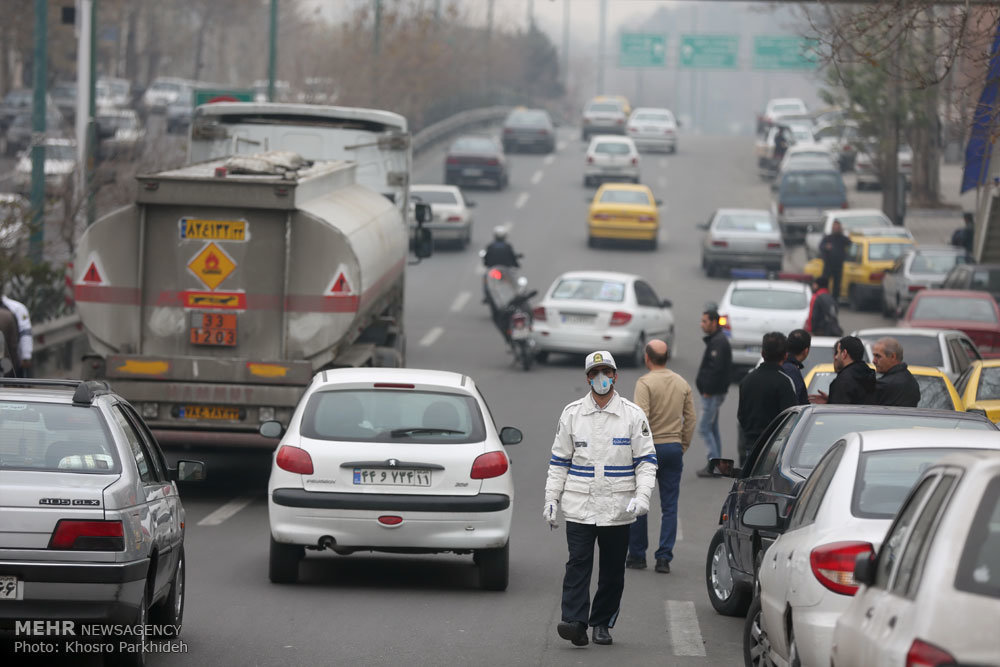Restricting diesel engine trucks eases Tehran’s air pollution

TEHRAN – Following consistent air pollution in the metropolis of Tehran trucks running on diesel engine were temporarily banned from the streets, which dramatically reduced pollutants in the capital.
Diesel trucks release three major pollutants of black carbon, nitrogen oxides and pm 2.5 fine particles and recent temporary restrictions that have been set for trucks in Tehran has led to a 50 percent reduction of these emissions at nights, the director of Tehran’s Air Quality Control Company said on Thursday.
Normally, trucks can ply Tehran streets during specific hours of night but recent severe air pollution led to the decision that clunker trucks would be banned from streets till the end of [Iranian calendar month of] Dey [December 22 to January 20], Mehr reported.
After the implementation of these decisions, data derived from Tehran’s three main air quality control stations show that the mean concentration of the three aforementioned pollutants has been reduced to half of the amount recorded over the previous week, Vahid Hosseini highlighted.
Hosseini went on to say that the data obtained from air quality stations demonstrate that the air quality of the Metropolitan’s nights is poorer than that of the days and the main difference between traffic of nights and days is the presence of heavy diesel-engine trucks overnight which has a visible effect on air quality.
Long-term studies show that vehicles count for 80 percent of Tehran’s air pollution, Hosseini added.
Recognizing the incomplete combustion of car engines as the main cause of black carbon, the Sharif University professor maintained that this pollutant is largely released by diesel vehicles. By nightfall and rush of trucks to the streets, a considerable increase is seen in the concentration of this pollutant, he added.
There are two other pollutants – namely nitrogen oxides and pm2.5 fine particles – which just have the same day-down/night-up scheme as black carbon, told the official.
The sinking of atmospheric boundary layer (ABL) at nights results in reduction of air volume to which pollutants are injected, so emissions should be strictly controlled over nights, highlighted the professor, adding that in some European cities, unlike Tehran, heavy diesel vehicles are only allowed to work at day-hours.
MAH/MQ/MG
Leave a Comment